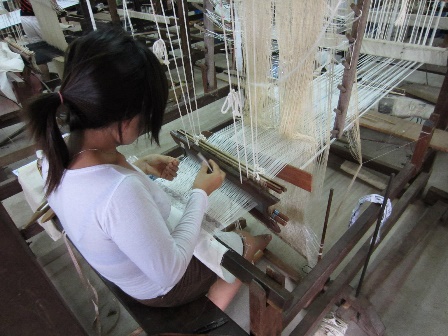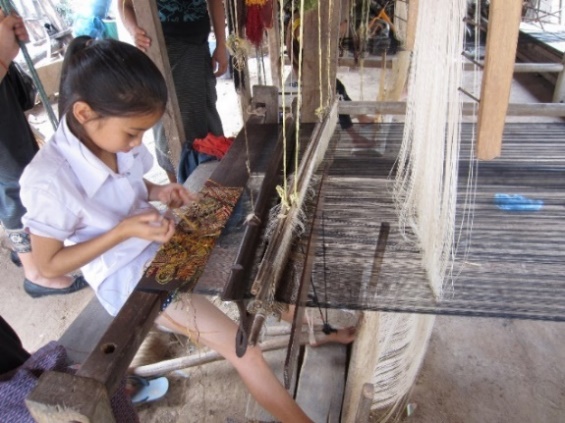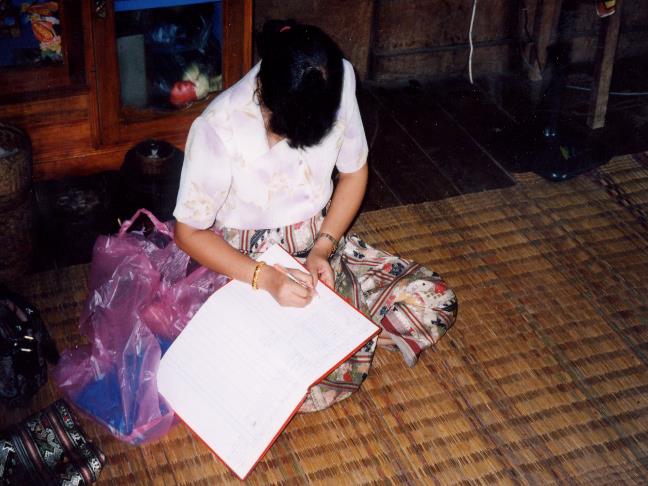- Project Leader:Ohno Akihiko (Aoyama Gakuin University, School of International Politics, Economics & Communication)
Contents of Publication
The isolation of rural markets from national and international markets is often claimed as a major impediment for rural development in developing countries. This book discusses market formation by investigating who integrates local and urban markets under what contractual arrangements, focusing on Lao hand-woven cloth. The pivotal market integrator is the master weaver, and the contractual arrangement that facilitates market integration is the relational contracting system, inter alia, the putting out contract.
Maintaining the relational contracting system involves effective monitoring of agents opportunism by principals and the motivation of the agent’s gift-exchange sentiment. In the absence of a formal sanction mechanism, principals are driven to rely on personalized trust-based rules that can be referred to as a Hayekian type of spontaneous order. Another important finding is that economic uncertainty jeopardizes trust by inducing one-shot opportunistic behavior.
Description
Great expectations are placed on the development of rural household non-farm industries, which are more labor intensive and make fewer demands on scarce capital resources than modern large-scale counterparts do. It is often difficult to place local products in nationwide market due to insufficient development of the market. The emergence of traders is increasingly recognized as indispensable for market development.
Traders have been neglected by mainstream economics textbooks. In addition, economists, such as Hick and North, claim that the evolution from personalized exchange to impersonal exchange, supported by legal sanction mechanisms, is central to the process of growth and development. However, such mechanisms are defunct at incipient stages of economic development.
This book deals with market development when formal sanction mechanisms have yet to be implemented effectively. It argues that the emergence of traders in peasant societies is essential to facilitate market formation because traders formulate a set of Hayekian spontaneous orders to govern market transactions. Such orders are supposed to substitute formal market governance mechanisms to avoid the state of nature in market transactions.
 A girl weaving sinh at home |
 A girl weaving sinh at home |
 Master-weaver doing bookkeeping |
|
